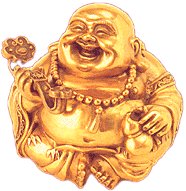|
|



|
|
HOME
Meditation What is Meditation? Power of Now Concentration & Insight Law of Attraction J Krishnamurti Tao Te Ching Dhammapada Buddhist Classics
|
Random Image
Meditation
What Is Meditation?
Conversation between Jiddu Krishnamurti
& Professor Allan W. Anderson
Krishnamurti: I don't know if you are aware of the many schools of meditation - in India, in Japan, in China, the Zen, and the various Christian contemplative orders, those who pray endlessly, keep going day after day; and those who wait to receive the grace of God - or whatever they call it. I think, if I may suggest, we should begin, not with what is the right kind of meditation, but what is meditation.
Anderson: Yes.
Krishnamurti: Then we can proceed and investigate together, and therefore share together this question of meditation, the word meaning ponder, hold together, embrace, consider very, very deeply. The meaning of all that is involved in that one word meditation. If we could start with saying that we really do not know what meditation is.
Anderson: Very well.
Krishnamurti: If we accept the orthodox, traditional Christian or Hindu or Buddhist meditation, and there is, of course, the meditation among the Muslims as the Sufis. If we accept that then it's all based on tradition.
Anderson: Yes.
Krishnamurti: What some others have experienced and they lay down the method or the system to practise what they have achieved. And so there are probably thousands of schools of meditation. And they are proliferating in this country: meditate three times a day; think on a word, a slogan, a mantra. And for that you pay $35 or $100 and then you get some Sanskrit word or some other Greek word and you repeat, repeat, repeat. Then there are all those people who practise various forms of breathing. And the practise of Zen. And all that is a form of establishing a routine, a practice that will essentially make the mind dull. Because if you practise, practise, practise, you will become a mechanical mind. So, I have never done any of those things because personally, if I may talk a little about myself...
Anderson: Please do.
Krishnamurti: ...I have watched, attended, went into certain groups of various types, just to look. And I said, "This isn't it." I discarded it instantly. So if we could discard all that: discard the Hindu, the Buddhist, the Christian, and the various importations of meditation by the gurus from India, and the contemplative, all that as a continuance of a tradition, which is the carrying over of what others have said, and other's experiences, other's illuminations, other's enlightenment, and so on. If we could totally discard all of that, their methods, their systems, their practices, their disciplines. Because they are all saying truth, or God, or whatever they like to call it, is something over there. You practise in order to get there. That is a fixed thing - according to them. Of course, it must be fixed. If I keep practising in order to get there, that must be static.
Anderson: Yes, of course. Yes, I quite follow.
Krishnamurti: Therefore truth isn't static, isn't a dead thing.
Anderson: No, no, I quite see that.
Krishnamurti: So, if we could honestly put away all that and ask what is meditation.
Anderson: Good.
Krishnamurti: Not how to meditate. In asking that question, what is meditation, we'll begin to find out, we'll begin to meditate ourselves. I don't know if I-?
Anderson: Yes, you do. You make yourself very clear. We're back again to the distinction between an activity, the goal of which lies outside the activity, in contrast to the activity...
Krishnamurti: ...itself.
Anderson: ...the end of which is intrinsic to itself.
Krishnamurti: Yes, sir.
Anderson: Yes.
Krishnamurti: So, could we start with saying I do not know what meditation is?
Anderson: Yes, yes. I'm willing to start there.
Krishnamurti: It's really marvellous if you start from there.
Anderson: It certainly is.
Krishnamurti: It brings a great sense of humility.
Anderson: Also one intuits even from afar a freedom.
Krishnamurti: Yes. Yes that's right. "I don't know." That is a tremendous acknowledgement of a freedom from the established known, the established traditions, the established methods, the established schools and practices.
Anderson: Exactly.
Krishnamurti: I start with something I don't know. That has, for me that has great beauty. Then I am free to move.
Anderson: Exactly.
Krishnamurti: I'm free to flow, or swim with, in the enquiry. So, I don't know. Now then, from that we can start. First of all, is meditation divorced from daily living? The daily conduct, the daily desires of fulfillment, ambition, greed, envy, the daily competitive, imitative, conforming spirit, the daily appetites, sensual, sexual, other forms, intellectual and so on. Is meditation divorced from all that? Or does meditation flow through all that, covers all that, includes all that? Otherwise meditation has no meaning. You follow?
Continue to next part...



Contact • Feedback • Typo • Privacy • Home